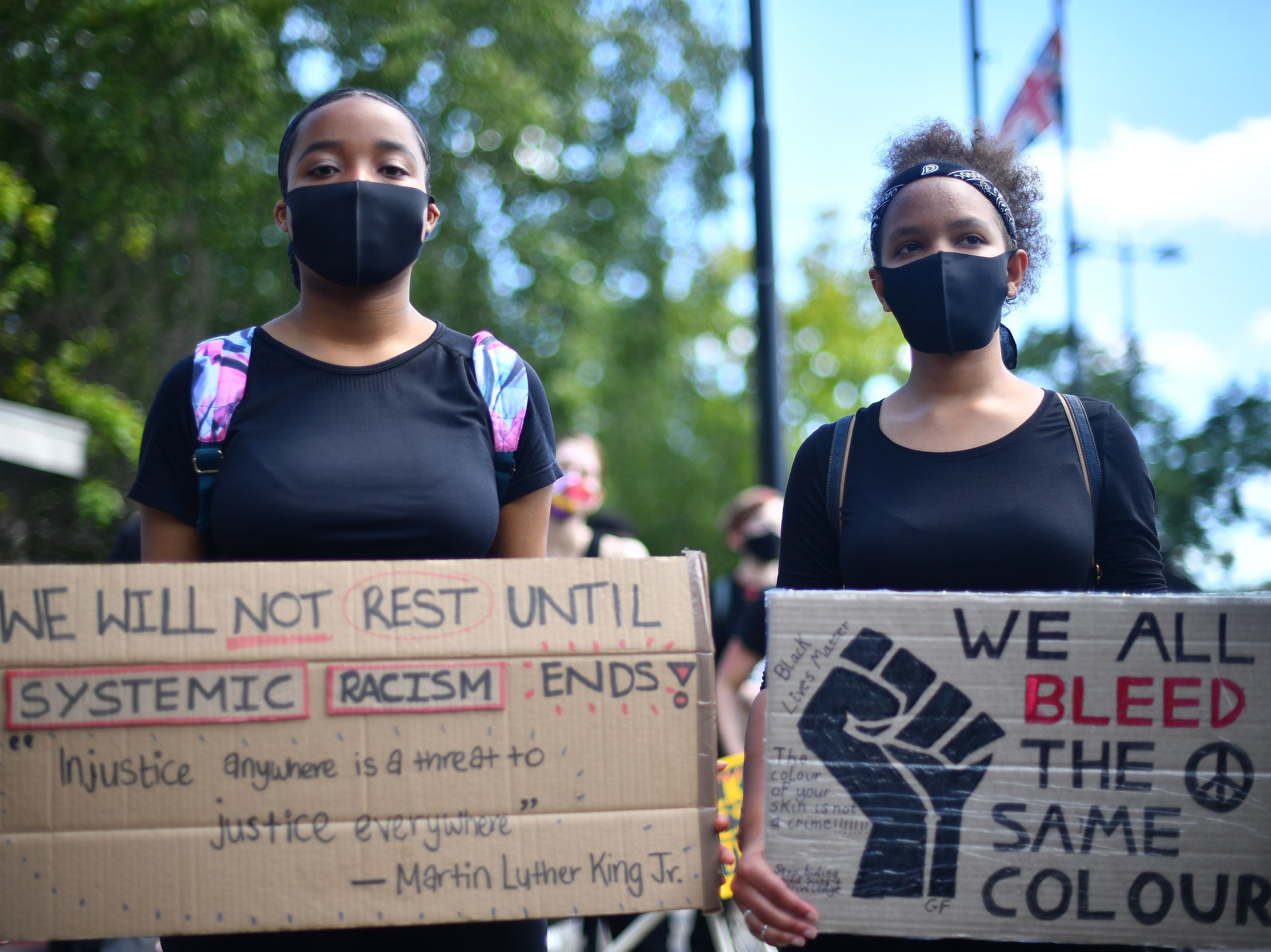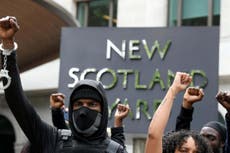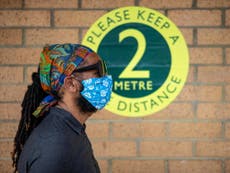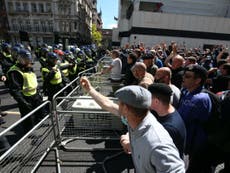Majority of black people in UK believe they are not treated equally by NHS, poll shows
Research to be considered by MPs finds 85 per cent of black people believe they are discriminated against by police

Most black people in the UK do not believe they are treated the same as white people by the NHS, research shows.
Polling carried out during the coronavirus pandemic, which is disproportionately affecting ethnic minority communities, also found that the majority of black people in the UK do not believe they are treated equally by police or that their human rights are properly protected.
It suggested that older black people, particularly over-70s, and men have greater trust in authorities than younger people and women.
The report, by ClearView Research, is to be considered by parliament’s Joint Committee on Human Rights on Monday.
The group said its polling and interviews, carried out in July and August, was the “first research of its kind in the UK”.
It found that 60 per cent of black people in the UK do not believe their health is as equally protected by the NHS compared to white people.
The figure was much higher for women, at 78 per cent, compared to men on 47 per cent, and researchers said women had “reported more experiences of unequal treatment” in interviews.
The only age group where the majority of black people believed the NHS treated them equally to white patients were over-70s.
The polling was carried out following a series of official reports showing the coronavirus pandemic has had a disproportionate impact on black and ethnic minority communities.
Research released by the Office for National Statistics (ONS) in June found that even when figures were adjusted for factors including age, region and wealth, the risk of death involving Covid-19 was twice as high for black men and 1.4 times higher for black women compared with white people.
Men of Bangladeshi, Pakistani and Indian ethnic backgrounds were also found to be at a “significantly higher risk of death involving Covid-19” compared to white men, although females were around the same.
The ClearView research also found that three-quarters of black people did not believe their human rights were protected equally to those of white people in the UK.
Women and younger people were again more likely to feel they were discriminated against.
“Some of the reasons for this were explored in interviews and reasons such as unequal treatment in education, employment and crime were raised,” the report said.
A stark 85 per cent of black people in the UK are they were “not confident that they would be treated the same as a white person by the police” in the survey.
One interviewee said they had been arrested after trying to break up a fight between two white people.
“When the police came, they did not know the full situation and because of this they arrested all of us,” the person said, adding that they were held in custody overnight.
“The two [white] gentlemen that were fighting were discharged before we were.”
Another interviewee reported being wrongfully arrested at Elephant and Castle railway station in London, by police searching for a suspect who was wearing “completely different” clothing.
Black women were more likely than black men to feel police would treat them differently to a white person, and over-70s were again the most optimistic age demographic.
The findings come after months of Black Lives Matter protests that were sparked by the killing of George Floyd by American police in May.
The demonstrations have highlighted issues including the disproportionate use of force against black men by police, as well as wider inequalities.
The National Police Chiefs’ Council has commissioned research on disparities and said it would draw up a “plan of action” for change.
ClearView researchers asked black people what could be done to improve their human rights in Britain, and made suggestions including improved anti-racism laws and prosecutions of hate crimes.
Other issues highlighted were job opportunities, a lack of positive black role models in different spheres, education and “purposeful reform” of the criminal justice system.
Subscribe to Independent Premium to bookmark this article
Want to bookmark your favourite articles and stories to read or reference later? Start your Independent Premium subscription today.




Join our commenting forum
Join thought-provoking conversations, follow other Independent readers and see their replies
Comments